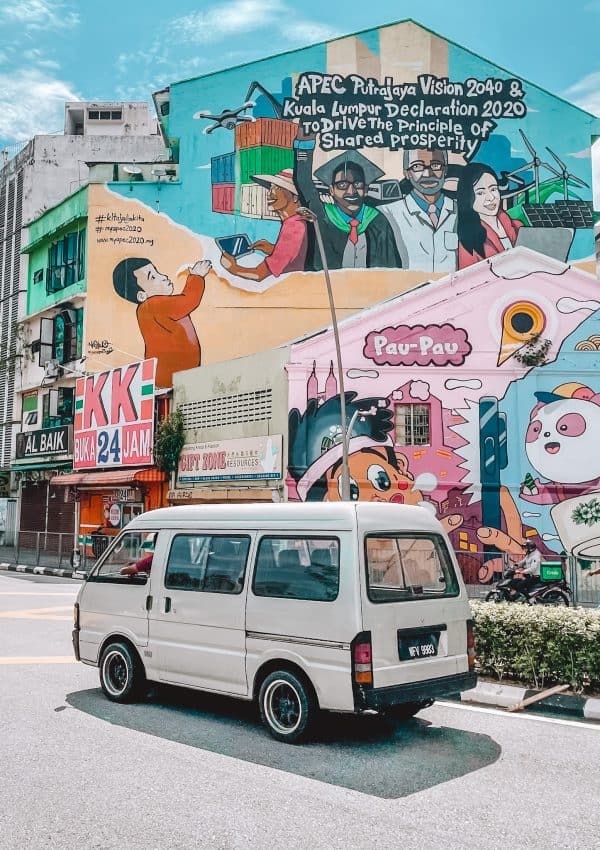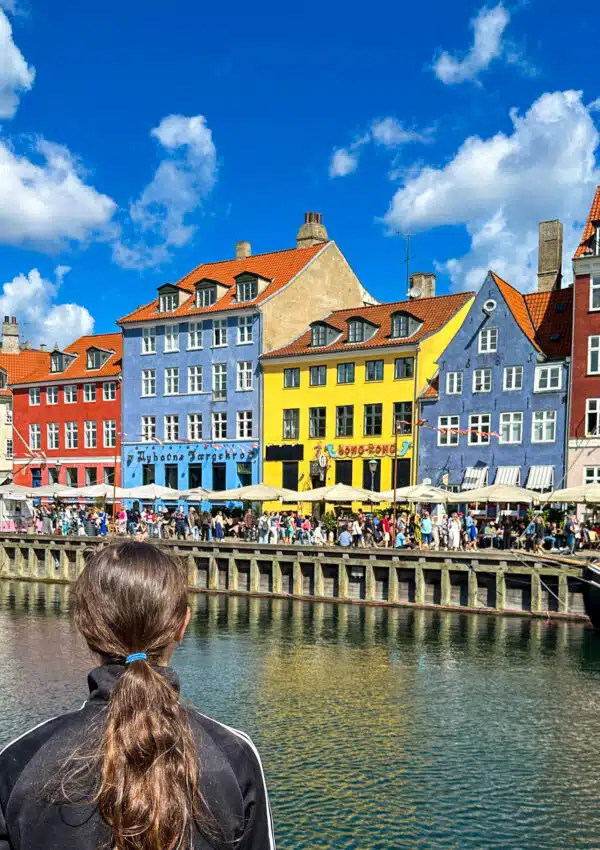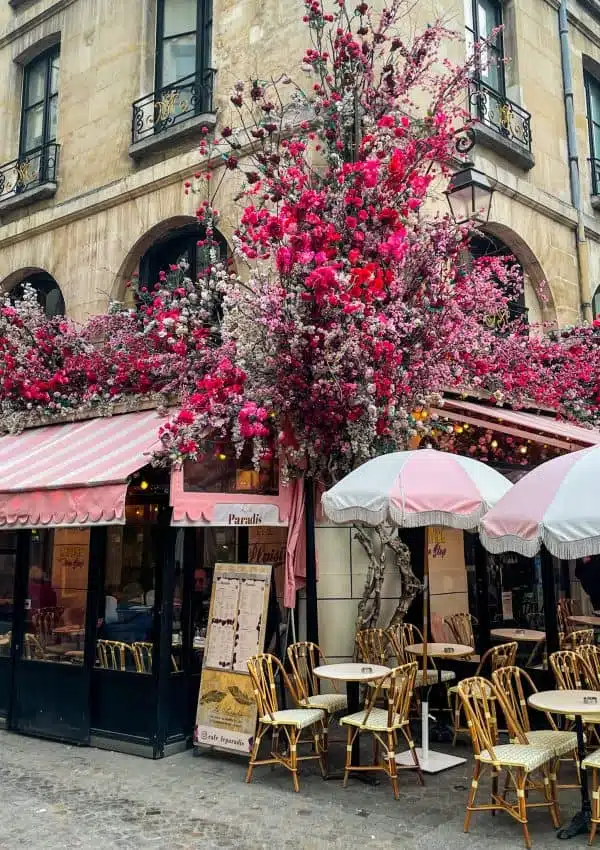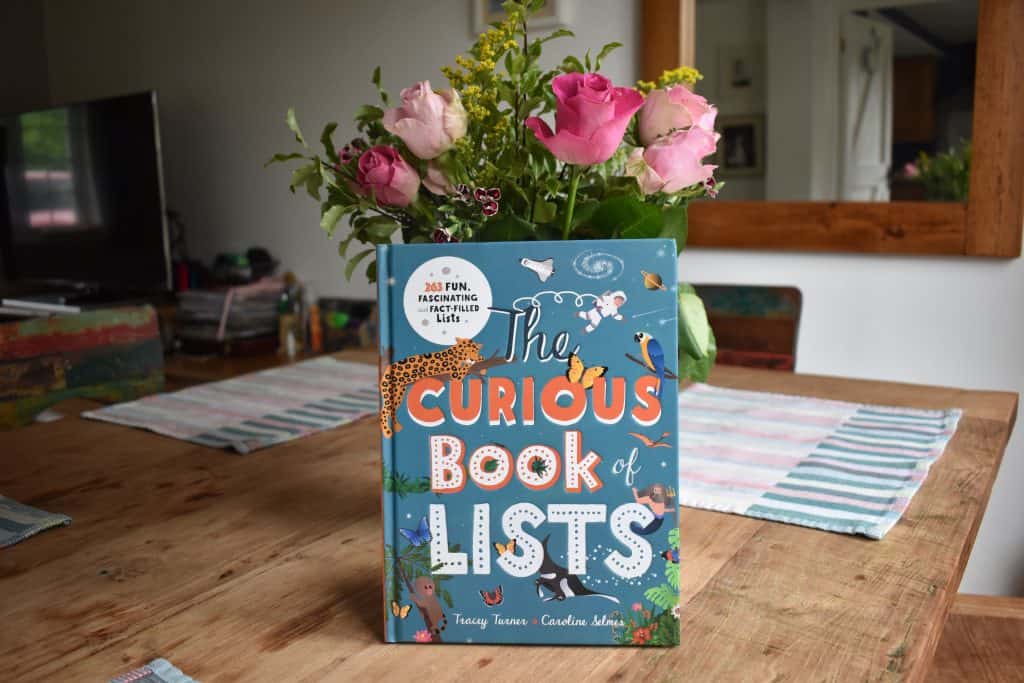Last updated on November 9th, 2024 at 08:08 am
Are you looking to find the answer to ‘Is Cape Town Safe’? Our guide to Cape Town Safety will ensure your family has a memorable and stress-free trip.

Cape Town is a beautiful city with so many great activities for families. We visited the city recently, loved it and would definitely recommend it as a fantastic family trip.
However, we were aware that we should probably be vigilant and take some precautionary measures to ensure our safety in Cape Town.
It’s important to remember that Cape Town is a busy city, and like most others, this brings with it some additional things you need to think about.
Always make sure you check whether a country is safe before travelling by visiting your Government’s Foreign Travel Advice site.
If you’re based in the UK, access Foreign Travel Advice HERE
If you’re in the US, access Foreign Travel Advice HERE
Quick Tips for Cape Town Safety
- Stay in one of the safer neighbourhoods
- Hire a car
- Stay with others, when possible
- Stick to well-lit and populated areas
- Be wary of scams
- Keep valuables hidden
- Keep emergency contact numbers to hand
The Socio-Economic Situation in Cape Town
When we visited, we noticed that the socio-economic divide in Cape Town was quite significant with a stark contrast between affluence and poverty. There are affluent areas with upscale, luxury homes and high-end restaurants on the waterfront – plus some expensive cars being driven around.
However, there is also, undeniably, a lot of poverty in Cape Town – made clear by the informal settlements on the fringes of the city and tented communities in the city centre. There are large numbers of lower-income residents who face issues such as unemployment, inadequate housing, and limited access to basic services and resources.
It’s an uncomfortable reality, and difficult to observe. However, it can open up discussions with your kids about inequality and difference. In fact, there are lots of opportunities for this in Cape Town, with visits to Robben Island and the District Six Museum illustrating South Africa (and particularly Cape Town)’s troubling past well.
Crime in Cape Town
How Safe is Cape Town? In 2024, South Africa’s crime index remains high. However, there have been improvements over the last six or seven years. South Africa does still have the highest crime index in Africa and is considered the fifth most dangerous country globally.
This sounds alarming, and while it is important to keep in mind that the crime rate is high in Cape Town, it’s also important to remember that over a million tourists visit Cape Town each year and the vast majority of those have a pleasant and safe stay.
Our own family trip to Cape Town was straightforward and trouble-free. We found people to be friendly and helpful and we had an amazing stay, in which we learned so much. That’s not to say we weren’t vigilant though.

Safest Areas in Cape Town
Nowhere is entirely immune to crime, but with that said – some areas are generally considered safer than others. Here are some of the areas considered the safest neighbourhoods in Cape Town
V&A Waterfront:
Popular with tourists, this is where you’ll find some of the best restaurants, attractions and views. There’s also a good presence here in terms of security. We stayed a short walk away from the V&A Waterfront at the Urban Elephant Docklands (on Prestwich Street). We were very happy with this area and felt safe there.
Camps Bay, Clifton and Bantry Bay:
Suburbs along the Atlantic coastline, such as Camps Bay, Clifton, and Bantry Bay, are known for their affluent communities and relatively low crime rates. These neighbourhoods also offer beautiful views of the ocean and some great restaurants.
Constantia, Newlands and Rondebosch
Constantia, Newlands and Rondebosch are southern suburbs known for being family areas with good schools, and lower crime rates compared to some other parts of the city. As well as families, these neighbourhoods are popular with students who attend the nearby universities.
Hout Bay:
Located along the coast, Hout Bay has a lovely harbour and is quiet and relaxed. While crime exists, this area is generally considered safer compared to some others, particularly around the harbour and beachfront.
Stellenbosch and Franschhoek:
While not technically in Cape Town, Stellenbosch and Franschhoek are nearby towns known for their wine production, family-friendly hotels and historic charm. They’re generally considered safe, especially in the town centre and the surrounding wine regions. You can easily drive into Cape Town for the day from here.
If you’re interested in visiting the Winelands with kids, check out my post on the best wine farms for families.
NOTE: Crime trends can change over time, so it’s a good idea to stay updated on current safety information. Foreign Travel Advice sites for the UK and US are listed at the top of this article.
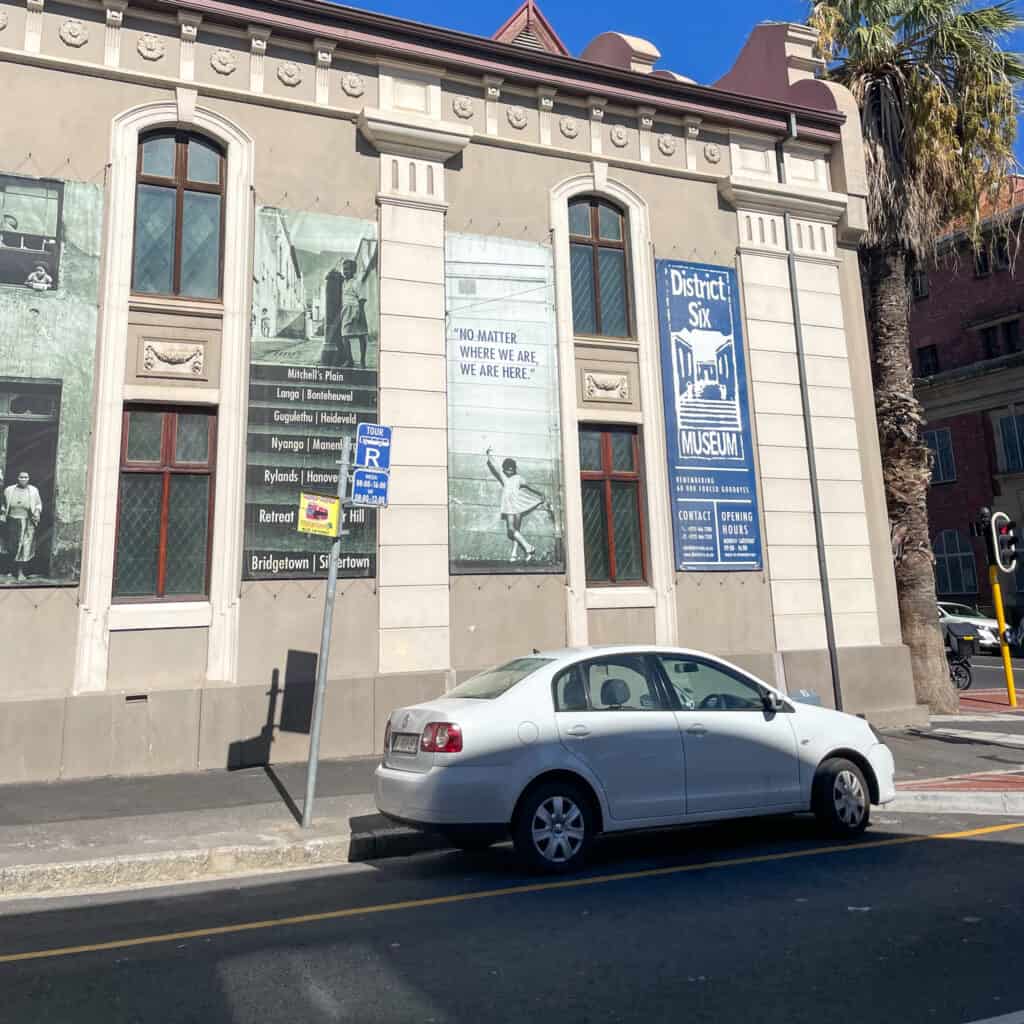
Driving in Cape Town
We rented a car while we were in Cape Town (and for our garden route road trip) and we were glad we did. I wouldn’t recommend using public transport in Cape Town or walking in certain of the city.
South Africa is known for ‘smash and grab’ car crime. Make sure you lock your car doors, particularly while stationary at red lights. And don’t leave valuables in your car if you’re leaving it parked.
Parking is also something else you need to consider in Cape Town. We tried to research ahead of time where we would be able to park, and we tried to park in monitored and supervised car parks.
This isn’t always possible, however, and you’ll find unofficial ‘parking attendants’ on the streets near restaurants and attractions (they’ll be wearing tabards or high-visibility vests). They’ll offer to assist with parking and look after your car while it’s parked.
While this might seem strange and a little unnerving, it’s best to work with the attendants, who are in all probability trying to make ends meet. Agree to offer them something for keeping an eye on your car (which more often than not, they will genuinely do). The going rate is usually around 5 to 10 Rand (a very small amount of money for most of us visiting from other countries).
Stay with Others
If you’re travelling solo, staying within a group at all times is trickier. I’d recommend staying in accommodation where you’re likely to meet others or joining group tours.
As a family, we did everything independently, but we stuck to the safer, tried and tested areas and I was also glad we’d made the decision to hire a car. Take a look at our Cape Town family itinerary for our recommendations on what to see and do in Cape Town with kids.
At night, stick to well-lit, busy areas such as the V&A Waterfront. This area also has plenty of supervised and monitored parking lots.
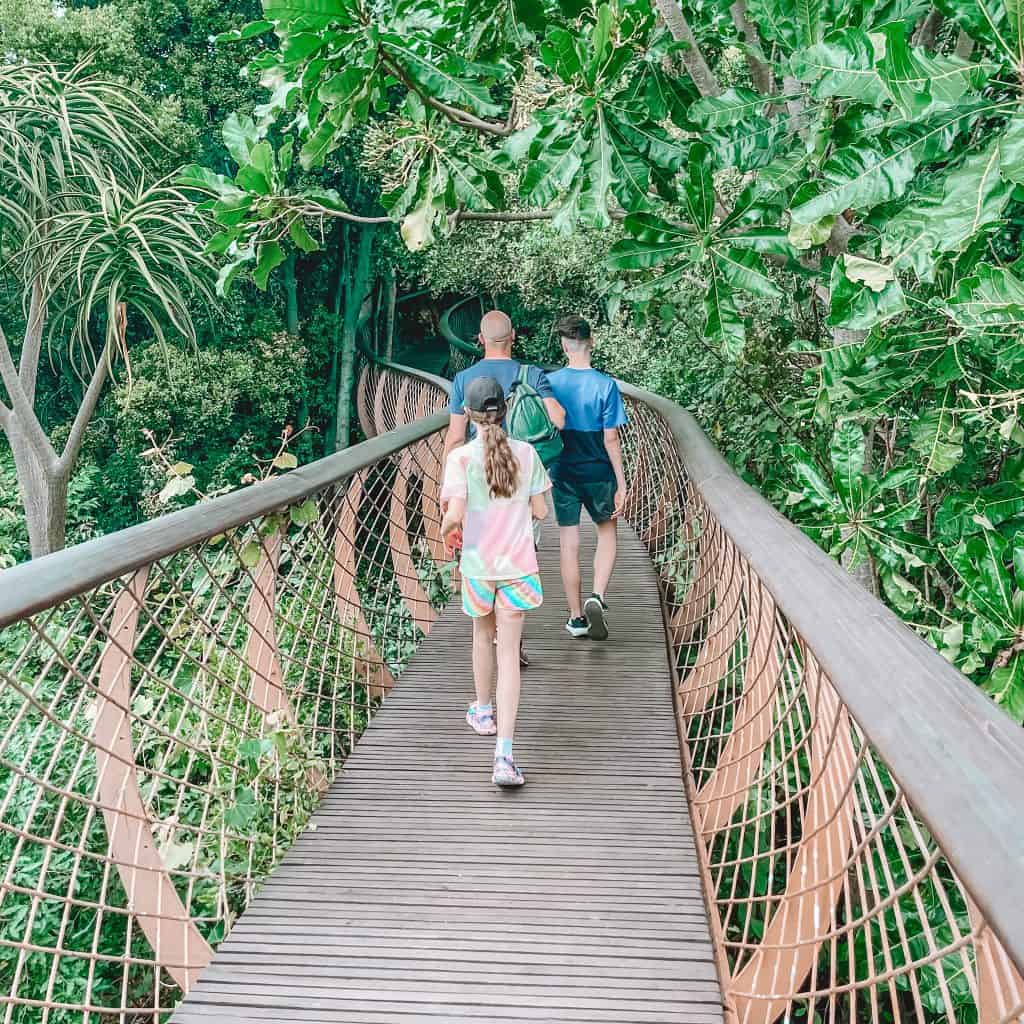
Be Wary of Scams
We found it best to be polite but firm when being approached by people on the street in Cape Town. While parking attendants are one thing, there are also situations you need to be a little more wary about.
We experienced a situation where a man in a tabard tried to guide us across a zebra crossing. We didn’t need assistance, so a polite but firm ‘no, thank you’ got the message across – if you agree to help, you’ll be expected to hand over money in exchange for it.
Scams to look out for in Cape Town include:
- People trying to assist you or distract you while you’re getting money out at an ATM
- Drink spiking – keep your drink with you at all times
- Fake police or airport staff – ask to see ID
- Unofficial guides – always book a reputable tour guide in advance
Keep Valuables Hidden
This is partly about using common sense, but it’s worth mentioning.
Think about what you wear (particularly jewellery) when you head out for dinner.
When you’re driving, don’t leave laptops or other valuables in sight.
If you have a backpack, consider wearing it on your front while out and about during the day.
Emergency Contact Details
You can access emergency contact numbers for all emergency services in Cape Town on the Western Cape Government website.
Is Cape Town Safe for Tourists? – The Verdict
Is Cape Town South Africa safe? Nowhere (in particular, busy cities) can be guaranteed completely ‘safe’. Random and unexpected events can always happen.
That said, there are some locations in which you should probably exercise caution and be extra vigilant. Cape Town is one of those places.
Follow our tips above and you’re likely to have a wonderful vacation in Cape Town – with only positive memories to bring back with you.

